Seeking Ways to Exclude Russian Vendors from UN Procurement System
The UN Secretariat and other United Nations entities are conducting their procurement procedures without excluding suppliers from Russia despite its full-scale aggression against Ukraine. States condemning the invasion are seeking to restrict Russian companies from obtaining contracts. It is currently possible by removing individual suppliers from the UN procurement system. However, the organisation lacks a systemic solution allowing the exclusion of vendors from a particular state, even one blatantly violating international law.
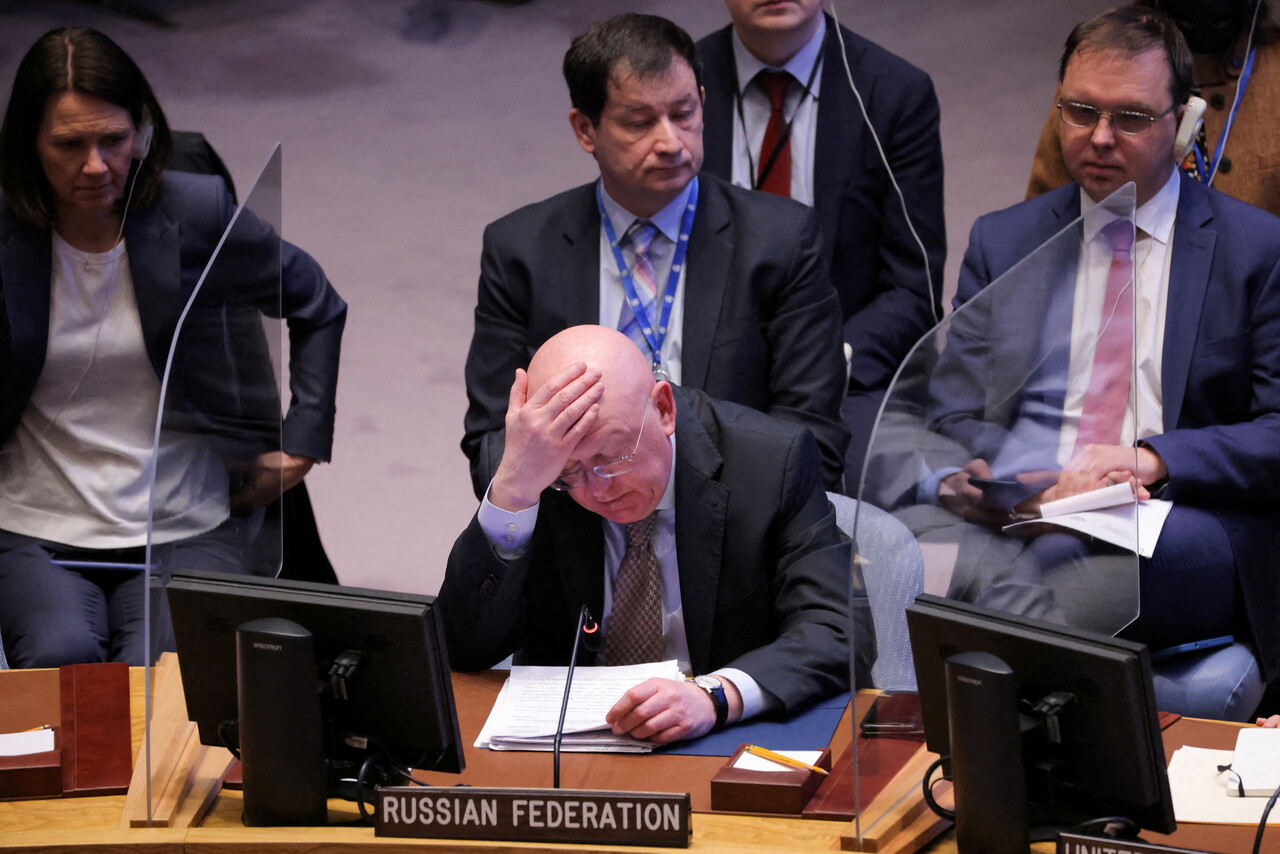 Andrew Kelly Archiwum: Reuters
Andrew Kelly Archiwum: Reuters
Last year, UN procurement stood at $29.6 billion.[1] This is comparable to the procurement market in medium-sized countries, such as in Poland in 2021 when the value of contracts awarded under the provisions of the Public Procurement Law amounted to PLN 184.6 billion[2] (about $45 billion). Purchased products and services are used to provide administrative services for the UN and its agencies and to conduct missions. The largest categories of UN procurement are health (including medicines, medical equipment), food and farming, construction, engineering and science, transportation and storage services, administration and operations, and media, IT and communications.[3] While UN procurement is not crucial to the economies of the suppliers’[4] home countries, it can be a cornerstone of the business model for individual companies, and is seen as a sign of prestige facilitating expansion into new markets.
Participation of Russian Suppliers in UN Procurement
According to 2022 data, there were 1,320 Russian vendors registered in the United Nations Global Marketplace (UNGM) database,[5] up from 823 in 2019 (i.e., the last year before the start of the prolonged series of economic and political crises caused by the COVID-19 pandemic and the war in Ukraine[6]). The total value of contracts awarded to Russian suppliers in 2022 was $256.62 million, the 30th place out of all UN member states. The biggest amount of procurement went to companies from the United States ($2.3585 billion), Belgium ($1.7483 billion), the UK and Denmark ($1.3055 billion and $1.3015 billion, respectively).[7] For Russia, this is a decrease from 2019 when it ranked 15th, with a value of $291.21 million in contracts for its companies. The largest category of contracts awarded to Russian entities is transportation, storage, and mail services at $136.7 million, followed by food and beverage products ($52.8 million), and pharmaceuticals, contraceptives, and vaccines ($51.7 million). Of the remaining categories, the values reported in the 2022 data did not exceed $5 million in any of them. Russian vendors obtained most procurement contracts from the World Food Programme (WFP; $100.3 million), the Secretariat ($90.2 million), and UNICEF ($46.5 million). Russian vendor composition is highly concentrated, with 95.9% of the value of the 2022 procurement (more than $246 million) obtained by 18 firms (they are visible in the statistics as “suppliers obtaining contracts with an annual value of more than $1 million”) against 226 other vendors who obtained contracts worth a total of $10.5 million. This high concentration among Russian suppliers has persisted for years and is higher than for other major economies (e.g., the U.S., China, France, or Germany), where it is typically 80-90%.
Following the Russian invasion in February last year, Ukraine, in an open letter to UN Secretary-General Antonio Guterres, called on the UN to “stop financing Russian aggression through UN business opportunities”.[8] Although the number and value of contracts awarded to Russian vendors is declining, they are still being given out. This is due to the lack of a legal instrument to exclude suppliers from a country disregarding international law. In addition, some of the contracts awarded to Russians are multi-year, and the statistics include their value together with new contracts. The most important example in this regard are contracts for helicopter transportation services, which are ongoing, concluded before the Russian full-scale aggression against Ukraine in 2022. Other difficulties also arise: the Secretariat has a passive attitude and concerns about the continuity of supplies necessary for the functioning of the organisation. In awarding contracts, the Secretariat is adopting a neutral (i.e., unchanged by Russia’s aggression against Ukraine) and, according to states condemning the Russian invasion, overly conservative attitude towards Russian suppliers. UN spokesperson Stéphane Dujarric last April explained that the organisation’s procurement process is not conducted on the basis of politics but on “the mandate given by the General Assembly and in [conformity] with the Financial Regulations of the UN, which requires such procurement actions to be done on the basis of best value for money, fairness, integrity and transparency, and effective international competition”.[9] In practice, this means that as long as Russian vendors meet their contractual obligations, the Secretariat does not take measures against them.
To date, the most severe action against Russian vendors has been taken by the International Civil Aviation Organisation (ICAO), which issued a Significant Safety Concern. In a resolution adopted by the ICAO Assembly, apart from condemning Russian aggression against Ukraine, the organisation pointed to Russia allowing double registration of aircraft as a violation of the 1944 Chicago Convention. According to the Convention, each airframe can only be registered in one country, but on 14 March 2022, Russia passed a law allowing local registration of aircraft that have been leased[10] and still registered abroad (e.g., in 2022 a significant number of the aircraft Russian aviation uses were registered in Ireland and Bermuda[11]). As only the state of valid registration can certify an aircraft’s airworthiness, this unilateral Russian action is illegal and the aircraft in question cannot be considered safe. Concerns about the safety of Russian equipment are particularly pressing in the context of problems with access to spare parts resulting from the sanctions imposed on the aggressor. As a result, the UN has decided to suspend the use of Russian equipment outside of emergency situations, including when human health and life depend on its use. While the actual impact of ICAO’s actions and the UN decision on Russian vendors will only be fully visible in the procurement statistics for 2023 (to be published in the summer of 2024), it provides a good starting point for taking further-reaching actions against Russian suppliers in the field of air transportation. The key will be to ensure strict on-the-ground compliance with the decisions taken and to make it as difficult as possible for vendors to circumvent them.
UN Procurement
United Nations procurement is conducted through a complex procedure based on a set of principles (best value for money, fairness, integrity, and transparency, effective international competition, the interests of the UN) and not political criteria. The process is governed by UN regulations, specifically the United Nations Procurement Manual (PM) and the United Nations Financial Regulations and Rules. The responsible UN officers are expected to be apolitical, that is, they should act according to the regulations and not their own political preferences or moral judgements. Nevertheless, due to the high level of complexity and ambiguity of the regulations, the staff role in the procurement process is greater than in the case of national proceedings, such as those conducted under the Polish Public Procurement Law. In practice, senior UN officers (including those responsible for removing vendors from the system) will, in the absence of an unambiguous answer in the regulations, be forced to make decisions with a wide margin of discretion. As a result, the actual extent of their powers may only become fully apparent in practice.
The centre of the procurement system is the Department of Organisational Support (DOS) within the UN Secretariat, led by the Under-Secretary-General for Operational Support.[12] This unit includes, among others, the Procurement Division (PD).[13] The PD deals with both procurement procedures and strategic management of UN procurement activities. Another part of the procurement environment is the Vendor Review Committee (VRC), which makes recommendations for sanctions against suppliers[14] to the Under-Secretary-General for Management Strategy, Policy and Compliance[15] in the event of rule violations. The VRC may propose censure, suspension, removal and other sanctions against the vendor from the procurement system.
Enterprises wishing to compete for UN contracts must, in principle (excluding certain categories such as hotel, conference and property rental services, and contracts with a value of less than $10,000), register with UNGM.[16] Non-registered or suspended businesses are not allowed to participate in solicitation exercises. Registration at the basic level (for procurements up to $150,000) is automated; at levels 1 ($150,000-500,000) and 2 (more than $500,000), evaluation by UN staff takes place. The supplier must meet the Pre-requisites for Eligibility for successful registration. Failure to meet them at a later stage may also be grounds for removal from the UNGM. During registration, it is necessary to accept the UN Supplier Code of Conduct[17] concerning, among other things, the supplier’s compliance with relevant standards pertaining to, for example, labour and working conditions, anti-discrimination, health and safety, human rights, prohibition of participation in the production or sale of anti-personnel mines, environment, and ethical conduct.
At a later stage, that is, already after registration with the UNGM, the VRC verifies suppliers in regards to, among others, prohibited practices identified in the PM (e.g., corruption, fraud, anti-competitive behaviour), compliance with contract provisions, the Supplier Code of Conduct and Pre-requisites for Eligibility.[18] The review is initiated, however, only after the UN has received evidence of practices that might lead to the imposition of sanctions. The PM does not specify how the UN is to receive it, so it can be provided by UN member states, private sector actors, activists, or even anonymously. If irregularities are found, the Committee can recommend, among other things, the removal or suspension of the supplier from the system, which in practice means not being able to participate in solicitation exercises. Importantly, the recommendations are presented not to the Under-Secretary-General for Operational Support (who oversees the Department of Operational Support), but to the Under-Secretary-General for Management Strategy, Policy and Compliance, who may decide to impose sanctions. Currently, there is no information that the Under-Secretary-General for Operational Support has taken action against Russian suppliers.
Possible Further Steps against Russia
To date, the systemic exclusion of suppliers from the UN procurement system on the basis of their nationality has not happened and is unlikely to happen in the near future due to the lack of political will. At the same time, the general exclusion of Russian vendors from the UN procurement system is particularly difficult due to Russia’s strong position in the organisation. Its status as a permanent member of the Security Council and its diplomatic power (which, although waning, remains significant) enable it to reach decision-makers directly and block changes to the procurement process. Currently, it is possible to attempt blocking the biggest Russian suppliers from participation in the system one by one. Even single cases of success would lead to an erosion of Russia’s position and demonstrate the UN’s disapproval of its violations of international law.
The first sphere in which steps can be taken is therefore exerting influence on users of Russian air transportation equipment to strictly comply with the ICAO Significant Safety Concern and the UN decision to discontinue the use of aircraft and helicopters supplied by Russian entities. Consequently, UN entities should not use Russian air transportation services except in situations of health and life-threatening emergencies (currently likely to be interpreted more or less restrictively, especially in the most difficult areas of UN mission operations).
A second possibility to weaken the position of Russian vendors in the UN procurement system is to use the tools provided by the Procurement Manual to challenge their registration in UNGM. To date, attempts have been made to prove Russian suppliers’ links to the Russian armed forces or entities that have committed the most serious violations of the UN Supplier Code of Conduct, such as involvement in the manufacture or sale of anti-personnel mines. Another option is to look for evidence of violations of the UN Supplier Code of Conduct by Russian vendors in other areas, for example, concerning labour rights, human rights, ethical conduct or environmental protection. Due to the more widespread nature of the violations, they may be easier to prove and the method of action itself more effective.
As the provisions of the Code of Conduct resemble typical provisions of Corporate Social Responsibility (CSR) policies applied in many countries by private entities, the use of commercially available tools to verify selected suppliers in this regard can be considered.[19] Use of these by UN officials, member states, or activists may uncover evidence from previously unexplored sources or at least identify potential violations for further examination. Another potential source of information about Russian suppliers’ malpractices could be whistleblowers, both employees and business partners. It is therefore advisable that a mechanism for the anonymous receipt of reports in this regard should be created at the UN level. Receipt of such reports can lead to an investigation by the VRC and the imposition of sanctions against suppliers.
The PM also allows for the removal of vendors removed or suspended from the list of registered suppliers of one of the UN system entities from the entire UN procurement system. However, it is difficult to determine whether this particular ground for removal from the system would be applied automatically without the VRC performing additional verification of the validity of the removal by another entity. One can imagine a situation in which a UN system entity removes a supplier that it has never awarded contracts and is not even potentially interested in from its registered vendor list. In such a situation, it is unclear whether, in practice, the VRC will recommend the removal of the supplier from the entire system or will disregard the decision of another entity and propose less severe sanctions (or no sanctions at all), or what decision the Under-Secretary-General for Management Strategy, Policy and Compliance would ultimately take. However, irrespective of the attitude of the Committee and the Under-Secretary-General in question, it is advisable to analyse the situation in the UN entities in order to identify those that could pursue a more thorough examination of Russian vendors and consider their removal from the lists of registered vendors. This would give the VRC and the Under-Secretary-General for Management Strategy, Policy and Compliance grounds for possible sanctions against the suppliers concerned.
Removal of a supplier is also possible in the case of domestic investigations for unethical practices (including corruption, fraud, coercion, collusion, obstruction, or any other unethical practice—the catalogue is open and therefore depends on the interpretation of the responsible UN officials) or having been sanctioned for them. It is therefore advisable for states to act not only at the international but also national level. They could independently verify within the scope of their jurisdiction (also outside their territory if they apply their law extraterritorially) whether there are grounds to initiate proceedings against specific Russian vendors due to unethical practices. International cooperation, including the exchange of information and collection of evidence, will play an important role, and action at the regional level could be facilitated by relations between EU Member States. As a first level of supplier screening, vetting Russian counterparties against EU sanctions lists could be a viable course of action. Knowledge and evidence of the reasons having led to the imposition of sanctions could be passed to the VRC or used to initiate domestic proceedings.
Removal of suppliers involved in anti-competitive practices[20] can be applied in a similar way. Competition law has been applied extraterritorially on many occasions (e.g., by the European Union) and the PM does not indicate that these practices must be connected to UN procurement. Therefore, the possible detection of competition law violations by the national authorities of EU Member States could be a serious argument to remove particular vendors.
A third option is to seek reform of the Procurement Manual itself. While changes allowing a blanket exclusion of Russian vendors from the UN procurement system would likely be blocked, limited action is possible. This could include introducing an obligation for suppliers to sign statements opposing crimes against peace and violations of the territorial integrity of other states, or supporting the principles expressed in the UN Charter, with or without mentioning its individual provisions. While such declarations are not legally binding, Russia's possible opposition to such an arrangement would be difficult to justify. Having to sign them may also discourage Russian vendors from competing for UN contracts, as they might fear negative reactions internally. In addition, should such a requirement be added to the PM, further steps could be considered, such as introducing the possibility of removal of suppliers that openly support violations of the UN Charter from the system, which could in the future be used against vendors not only from Russia but also from other countries that do not comply with international law. At the same time, this would reduce the risk of Russian vendors relocating their activities abroad to avoid more detailed examinations.
Potential Difficulties
In the short term, a fundamental change in the UN’s procurement procedures is unlikely. This is due, among other things, to problems with the General Assembly’s adoption of a new supply chain resolution.[21] This resolution would allow a workaround to the UN’s best value for money principle and the prohibition of discrimination on the basis of a vendor’s nationality even when the vendor’s country of origin is in clear violation of international law. Unfortunately, it has not been adopted despite repeated attempts. The process has been hampered by, among others, Russia, which is demanding that the legislation include an obligation for the UN to reveal the details of the winning bid or proposal to the losing bidders, but which is something that could lead to the disclosure of know-how and as such is being blocked by other states. Attempts to change the requirements for suppliers might also run into the problem of not having enough support among member states, such as proposals to add a reference to International Labour Organisation standards to the supply chain resolution, which were opposed by, among others, some African countries.
To maintain smooth UN operations, obtaining suitable replacements for equipment and supplies sourced from Russian vendors also remains a significant problem. It has become apparent especially in the case of air transportation. Russian aircraft, due to their specifications (simple design, limited electronics), perform better in difficult weather and geographical conditions (e.g., in Mali, the Central African Republic, the Democratic Republic of Congo) and are easier to maintain. At the same time, their closest competition is Ukrainian equipment (usually machines of the same type), which, due to the ongoing Russian aggression, is currently used primarily for domestic needs, limiting the number of machines available for UN operations (e.g., they have been withdrawn from Somalia[22] ). An additional difficulty is the matter of higher costs because of the greater complexity of the equipment offered by competitors and their use of the difficult market situation to raise prices. In this context, the withdrawal of Russian helicopters may make it more difficult for the UN to conduct operations on the ground, which would be negatively received by the organisation's local staff and countries of the Global South. Excluding Russian suppliers submitting cost-optimal bids or proposals could be seen by the Global South as a threat to the aid they receive and even their food security. It might therefore happen that Russia will use these concerns for disinformation and propaganda campaigns against Western countries. Given the current troubles of developing countries[23], Russian accusations could find fertile ground and be politically costly for the countries involved in actions against Russian suppliers.
In the event of action against Russian vendors, the possibility of a symmetrical Russian response must also be taken into account. The possible use of certain organisations of the UN system by the Russians to remove suppliers from their lists or initiation of domestic proceedings would lead to an escalation of the dispute at the political level. In such a situation, the positions of the VRC and the Under-Secretary-General for Management Strategy, Policy and Compliance, who would have to make binding decisions in the absence of clear guidance in the PM, would be crucial.
Conclusions and Recommendations
While the removal of Russian vendors from the UN procurement system cannot affect the Russian economy as a whole due to the relatively low value of the contracts, it would be a part of the political pressure exerted on Russia. The introduction of systemic changes, that is, reform of the Procurement Manual or the Supplier Code of Conduct, as well as the adoption of a resolution on supply chains with provisions unfavourable to Russia, is desirable, although unlikely at the moment. In this regard, it is advisable to take steps to stop individual Russian vendors from receiving UN contracts, as well as to continue the dialogue with countries blocking systemic changes. In this respect, it is particularly important to forge a consensus with the African Union and G77 states, which significantly influence the UNGA votes due to their large number but which take a differentiated approach to the war in Ukraine.[24]
Although the participation of Russian suppliers in UN procurement is gradually declining, Russian companies remain important suppliers for the UN due to financial and organisational reasons. As a result, it can be expected that even grounds for their removal or suspension from the UNGM (e.g., documented violations of the Supplier Code of Conduct, national procedures) emerge, in the absence of alternative suppliers, removal will not be the preferred solution. The exclusion of Russian companies from the system requires a suitable replacement to be found in each case. Sending a clear signal to countries where UN missions operate that any supplier changes will not negatively affect them, including in particular the availability and prices of products and services, will be an important element of the process. In addition to taking direct steps against Russian vendors, it is therefore advisable to maintain good relations with countries of the Global South in order to convince them that these actions are not directed against their stability and security. This may require additional assistance from Western countries. At the same time, it is necessary for countries supporting the exclusion of Russian vendors from the UN procurement system to enter into a dialogue with enterprises from their countries to encourage them to submit bids or proposals (as individual suppliers or consortia, including international consortia) that are competitive in terms of price and quality with those of the excluded Russian suppliers so that the consequences of the dispute are not borne by the citizens of developing countries or the UN agencies. For example, a more proactive approach could be considered to replace helicopters supplied by Russian vendors with machines of a type available in the former USSR and in countries that imported Soviet or Russian equipment.
Poland and its partners play an important role in efforts to exclude Russian companies from the UN procurement system. Apart from working for systemic change, Poland can support the vetting of individual Russian companies, collect and present evidence of their non-compliance with the Supplier Code of Conduct and Pre-requisites for Eligibility to UN procurement bodies. In this respect, the European Union remains an important forum for information exchange. EU countries could coordinate the vetting of suppliers and document possible violations in the Single Market, and jointly present the evidence to the UN.[25] Coordination with the U.S., UK and other countries supporting the cause is also advisable, especially in terms of political solutions, which requires convincing UN entities to verify Russian vendors more thoroughly and possibly exclude them from the system, as well as maintaining good working relations with the VRC.
[1] 2022 Annual Statistical Report on UN Procurement, UN, www.ungm.org.
[2] Report of the President of the Public Procurement Office on the functioning of the public procurement system in 2021, www.uzp.gov.pl.
[3] 2022 Annual Statistical Report, op. cit.
[4] The terms “vendor” and “supplier” are used interchangeably in the UN Procurement Manual and in this paper.
[5] Procurement data by supplier country (ungm.org).
[6] P. Dzierżanowski, “Businesses, EU Strengthening International Supply Chains,” PISM Bulletin No. 44 (2665), 17 April 2023; Z. Nowak, P. Dzierżanowski, “Business and Consumer Protection Must Evolve after Europe's Energy Crisis,” PISM Bulletin, no. 69 (2690), 6 June 2023, www.pism.pl.
[7] 2022 Annual Statistical Report, op. cit., p. 12.
[8] D. Clancy, “Russia's Powerful Perch at the UN Is Crumbling,” Pass Blue, 16 May 2022.
[9] Ibidem.
[10] D. Clancy, “Russia's Violations of Global Aviation Rules Could Leave the UN With Tough, Costly Choices,” Pass Blue, 16 August 2022.
[11] ICAO, “Resolutions Adopted At The 41st Session Of The Assembly,” October 2022, icao.int/a41_res_prov_en.pdf.
[12] Atul Khare from India holds this position since 1 January 2019.
[13] UN, Procurement Manual, para 2.2.
[14] Ibidem, point 3.4.
[15] Catherine Pollard from Guyana holds this position since 1 September 2019.
[16] Ibidem, point 3.1.1.
[17] UN, UN Supplier Code of Conduct, December 2017.
[18] UN, Procurement Manual, para 3.3.
[19] CSR assessment companies use artificial intelligence-based tools for analysing publicly available information about suppliers.
[20] UN, Procurement Manual, para 3.3.a.
[21] P. Falk, “Ukrainian diplomats push U.N. to ‘stop financing Russian aggression’ by buying Russian goods and services, CBS News, 12 April 2022.
[22] D. Clancy, “Russia's Powerful Perch …,” op. cit.
[23] P. Dzierżanowski, “Developing Countries on the Brink of a Debt Crisis,” PISM Bulletin, no. 89 (2710), 7 July 2023; P. Kugiel, “The Impact of the War in Ukraine on the Food Security of Developing Countries,” PISM Bulletin, no. 63 (2482), 14 April 2022.
[24] S. Nowacka, J. Czerep, Fertile ground: how Africa and the Arab World found common language with Russia on Ukraine, PISM Report, January 2023, www.pism.pl.
[25] S. Kolarz, “United in Diversity: The EU in the UN System,” PISM Strategic File, No. 1, January 2022, www.pism.pl.


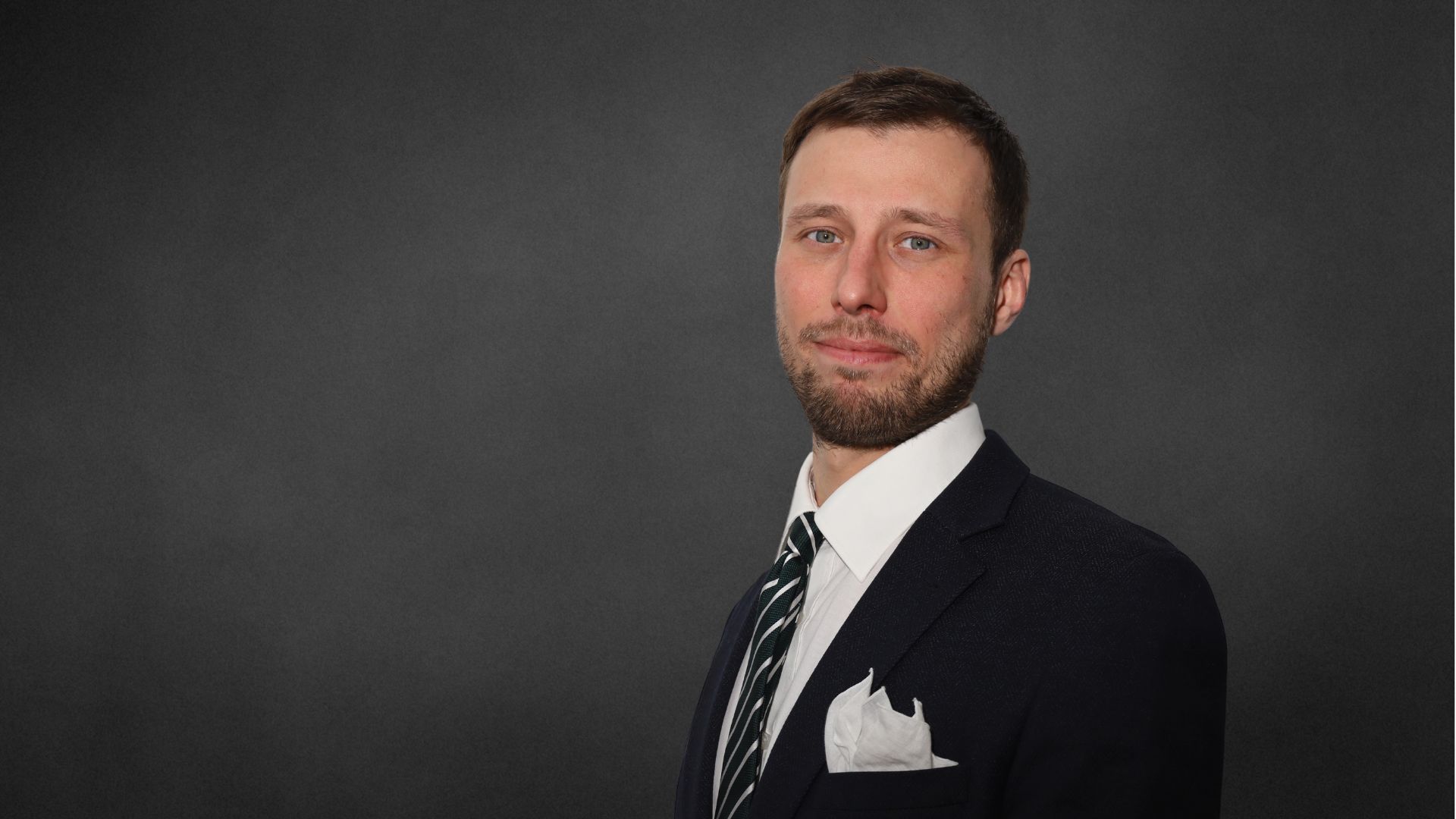
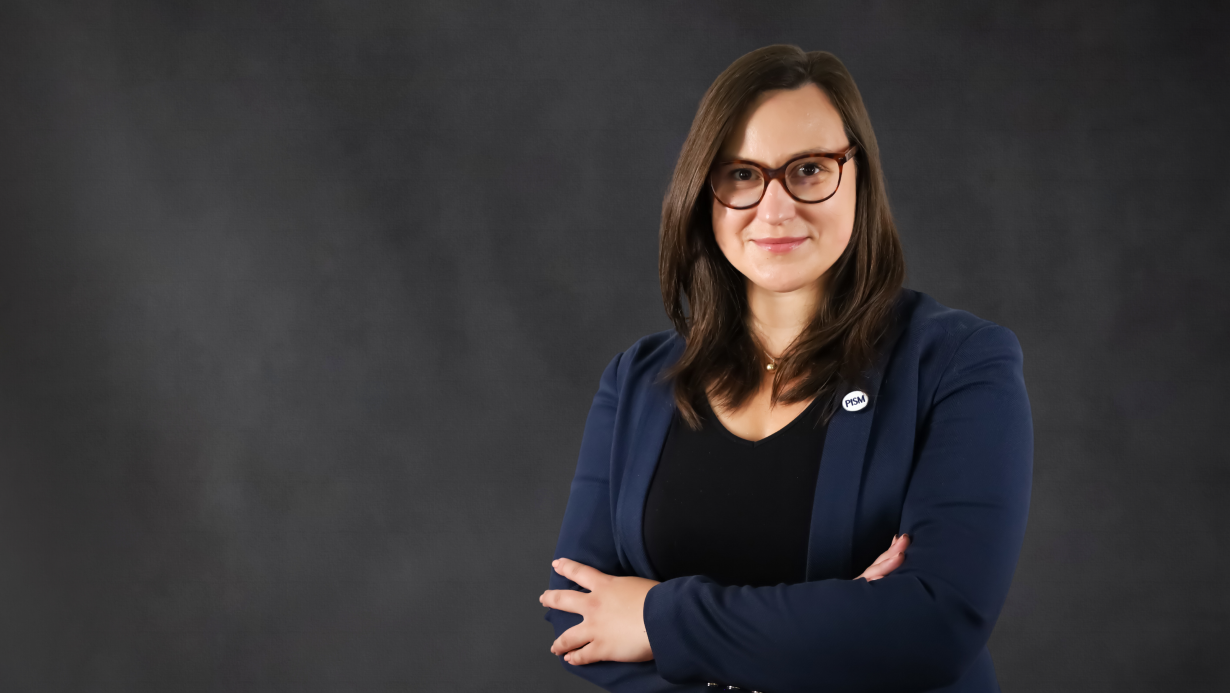
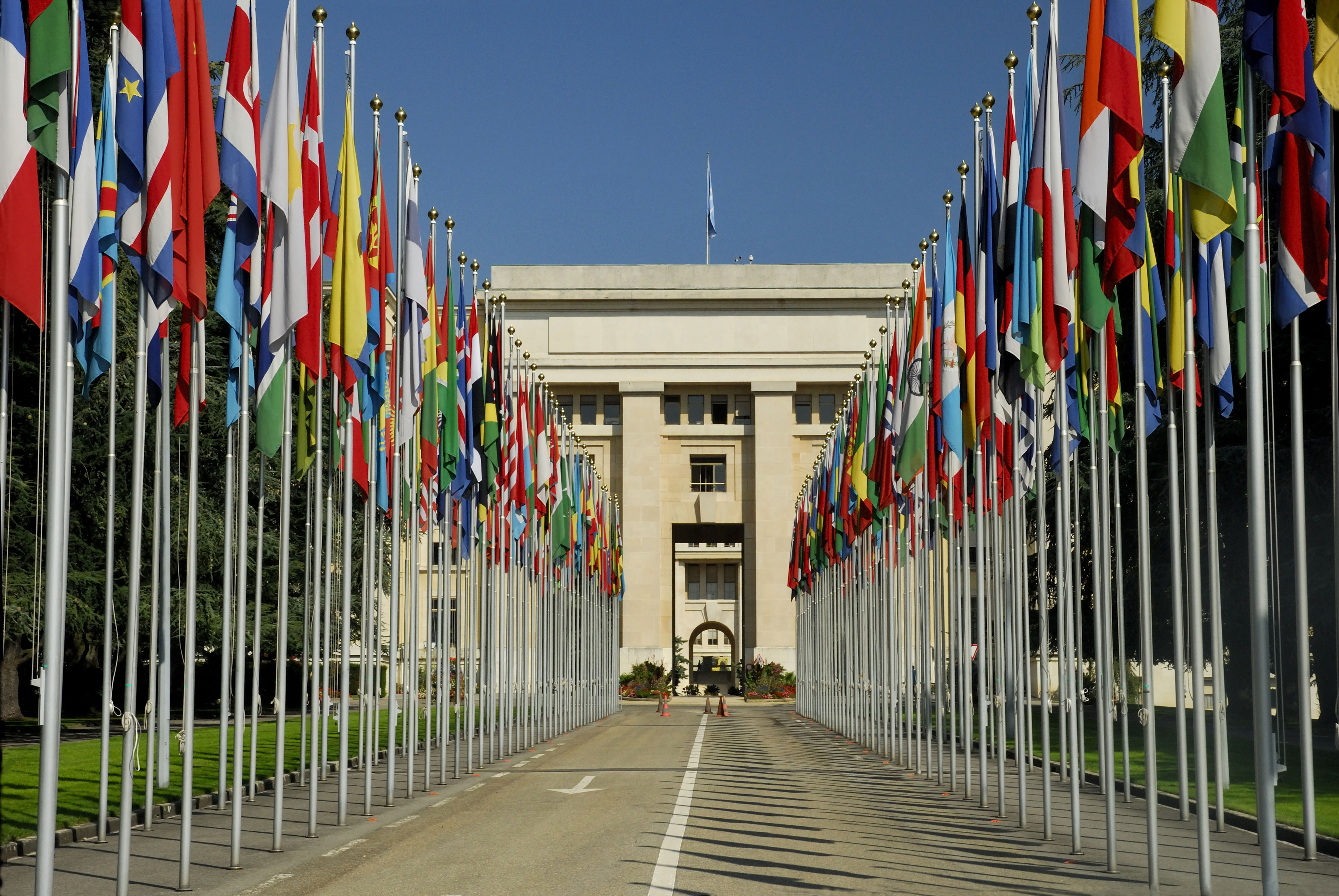
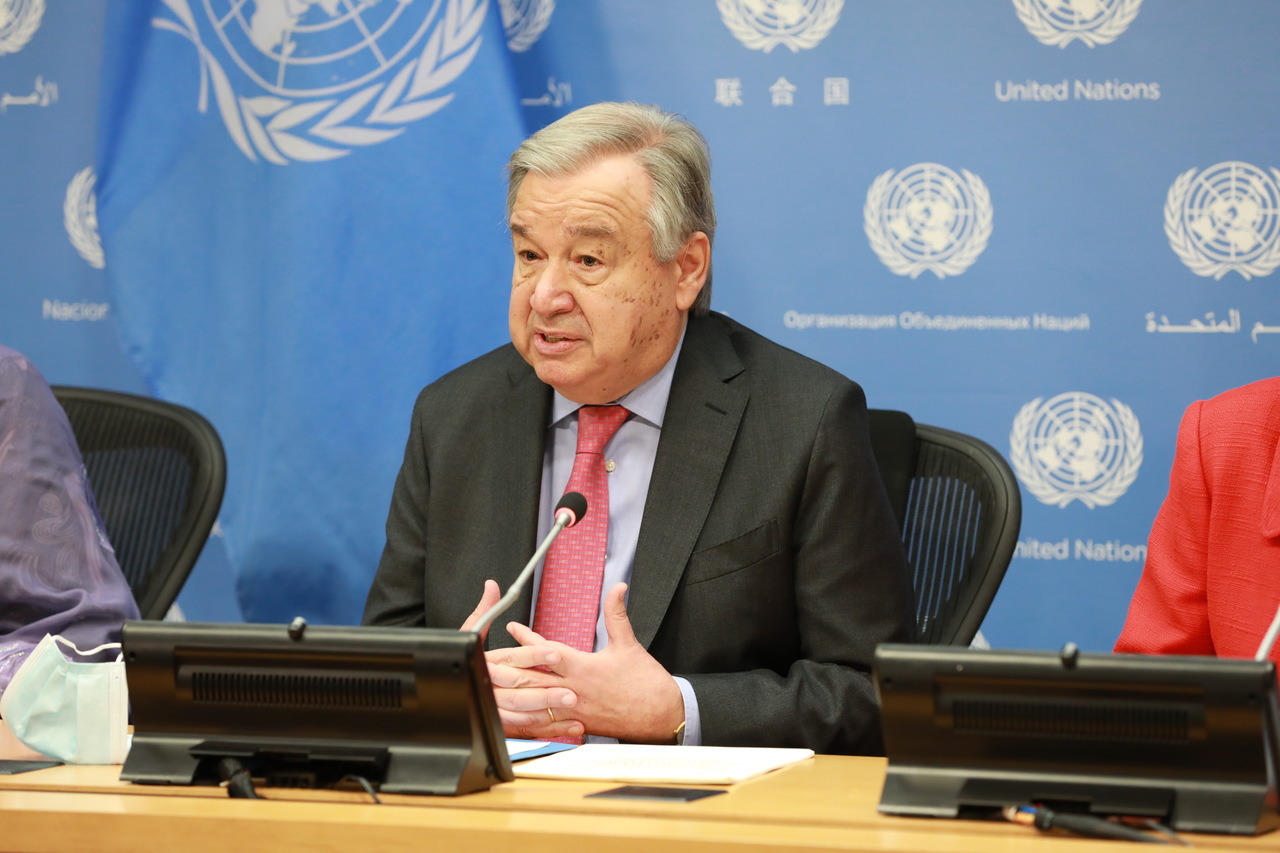
.png)